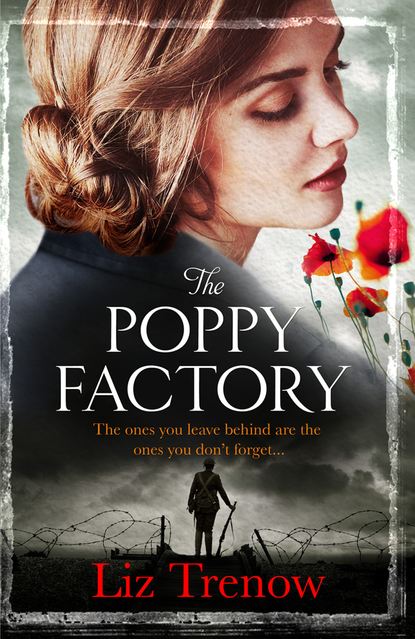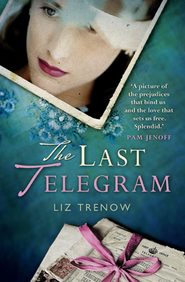По всем вопросам обращайтесь на: info@litportal.ru
(©) 2003-2024.
✖
The Poppy Factory
Настройки чтения
Размер шрифта
Высота строк
Поля
She nodded.
‘Okay. I think you need to talk to someone, but perhaps not today. The best thing for you now is to go straight home, have something to eat and a couple of glasses of wine. Try to think about something else. I’ll text to let you know what Frank says.’
It was this simple act of kindness and understanding which finally broke the dam, opening the door to all the horror, the guilt and the shame. She began to weep, with long, agonising gasps that seemed to wrench all the air out of her lungs. Dave moved his arm around her and she rested her head on his warm, broad shoulder till the sobs abated.
Chapter Four (#u1b060469-86bc-5910-b283-ab87400613d0)
She was relieved to see her father in the station car park because he wouldn’t ask too many questions; after a heavy date with a whisky bottle, she was feeling particularly fragile.
When she’d got back to the flat the previous day she’d found it deserted and remembered that Vorny and Hatts were away on exercise for two weeks. She slumped down on the sofa and wept, desolate and desperate for someone to talk to. Why weren’t they here, when she’d needed them most? She considered calling Nate but decided she couldn’t dump her problems on him, not just yet. After a while she dried her eyes and stomped around the flat wondering what to do with herself. Then, reluctantly, she dialled her parents’ number.
‘I’ve got a few days unexpected leave, Mum. Can I come and stay?’
‘Of course, dear. Are you all right?’
‘Ish. Talk tomorrow, okay? I’ll be there on the five o’clock train. Can someone pick me up?’
As they drew up to the house her mother was on the doorstep, with Milly the dog, both regarding her with inquiring eyes. Why the unexpected leave? Why wasn’t she spending it with Nathan? Of course her mother was far too wise to ask directly. Jess would share any problems, in her own time. She always did.
‘How’s things?’
‘Fine, thanks. Glad to be here.’
‘You look pale, love. Are you feeling okay?’
‘Just a bit weary. Heavy week.’
The truth was that she didn’t really feel anything much right now, except numb and confused. All her adult life had been spent working towards, training and then becoming a medic. She’d wanted to make a difference, to save lives and she’d loved it, mostly. Until yesterday she had been determined to spend the rest of her life doing it, couldn’t imagine any other form of career.
But somehow all that certainty had now disappeared, washed away like the poor young man’s blood on that dismal pavement. She had broken her promise to James, her vow to prevent anyone dying through any delay in stemming their loss of blood.
The future felt like a quicksand, untrustworthy and perilous. Last night, during her long commune with the bottle, she’d argued with herself, sometimes out loud, as the logical, calm voice of reason struggled to be heard over what her instincts seemed to be shouting:
You’re a good medic, well-trained, highly experienced. You’ve made a difference, even saved lives.
I’ve failed to save lives. I failed that young man. I punched that idiot in the street.
Just a couple of blips, you’ll get over it.
It’s not that. I can’t trust myself any more: the flashbacks, the anger. I failed my promise to James.
Just two events in four months, Jess.
I’m a danger to patients. My confidence is gone. The thought of going back to work makes me feel panicky and sick.
You could get help, counselling perhaps? That’ll sort it.
Do I want to put myself through all that self-examination crap? Anyway, I don’t know if I really want to go on putting myself on the line every day.
Okay, so give up being a medic. But you need to earn a living somehow. What would you do instead?
Oh Christ, that’s it. What else could I do? There is nothing else.
The argument raged in her head until, finally, she’d passed out, fully dressed, on the sofa.
Jess had envisaged walking with her mother on the beach, perhaps sitting on the dunes, a neutral, impersonal place to talk because you naturally sat looking outwards, your eyes drawn to the sea and the horizon, rather than facing your companion. Quite why this made it so much easier to be honest with yourself she never completely understood, but it always seemed to work.
She recalled days and nights of teenage angst when she would rush to the sea, weeping her eyes out over some spotty, undeserving youth, or spending hours with her best friend in the dunes dissecting every nuance of their latest romances, imagined or real. Alone or in company, self-pity never survived for long out on the beach. The soothing, rhythmical shush of the waves, the wide open skies and grey sea stretching to infinity always helped her to find a sense of proportion, reminding her of how small and insignificant we are in this vast universe, how unimportant our problems in the wider scheme of things.
But this time it didn’t turn out like that.
After breakfast, she’d just made another pot of coffee and was sitting at the kitchen table while her mother fussed around, washing up, putting away. Her father had drifted off to his greenhouse.
‘Look what I got for supper,’ Susan said, pulling something out of the fridge. ‘I went to that lovely butcher’s yesterday. I know it’s your favourite.’ She placed the parcel on the table and unwrapped it, revealing a large leg of lamb, its severed flesh oozing dark red blood onto the worktop.
Jess had time to blurt out, ‘Lovely …’ before the nausea hit her, like an unstoppable wave. She made it to the cloakroom just before she vomited, violently and uncontrollably, into the toilet, groaning with pain as her guts turned themselves inside out. She gagged, again and again, her throat burning with the vicious acid residue of last night’s whisky.
She heard her mother at the door and then by her side, and a soothing hand stroking her shuddering back. When it was all over she allowed herself to be led back to the living room, on trembling legs, gratefully accepting the glass of cool, clear water she was offered.
Her mother sat down on the chair opposite. ‘Are you feeling better now?’
Jess nodded.
‘What was it? Something you ate, do you think?’
Jess took a sip of water, trying to delay answering until she’d put her jumbled emotions into some expressible order. She was about to brush it off with a jokey remark about a dodgy take-away but then, as if the phrase had formed itself independently of any conscious thought, the words came out of her mouth: ‘I’m giving it up, Mum.’
‘Giving what up, love?’
‘Being a paramedic. I’m going to quit. I can’t do it any more.’ Just as soon as she heard herself admit it, an almost overwhelming wave of relief sluiced through her body.
Her mother’s eyes widened, but she managed to keep her voice calm. ‘This is sudden, Jess. I thought you loved the job? Has something bad happened?’
The tears began to flow freely as she found herself describing the events of yesterday. The way she’d lost control, found her mind flashing back to the desert, the shocking outcome.
The discussion that followed went much along the same lines as the internal debate she’d had on the sofa with the whisky bottle last night. Her mother made all the reasonable responses: take your time, seek some help, you’re a great medic, it would be a loss to the service, it’s what you’ve been working for all your life. But the more the conversation continued, the more Jess became convinced that what her inner voice had been telling her head was right. She couldn’t carry the responsibility of saving people’s lives, not any longer.
Eventually her mother stopped offering suggestions. ‘It’s your life, my love. Whatever you decide will be for the best.’ She leaned over and stroked Jess’s hand. ‘But shouldn’t you also get yourself checked over by a doctor to find out what caused you to be so violently sick?’
Jess hesitated, unwilling to inflict another disappointment, but she would have to admit it in the end. ‘I’m sorry, Mum, but it was the leg of lamb. It brought everything back. It’s what that terrible stump yesterday reminded me of, and when I stood up afterwards there was a butcher’s just beside us and the meat was just like that poor young man’s flesh.’ She shuddered involuntarily, remembering the red of the meat and the silvery slivers of shattered glass.
They had fish and chips for supper instead and, much later that evening, after her father had gone to bed, they sat on the patio together watching the stars come out. It was September now, the evenings were drawing in and there was a dampness in the air with that autumnal countryside smell. She always found this time of year melancholy: the swallows gathering for their long migrations, the changing sounds of birdsong, dew on the grass in the morning, the yellowing of the leaves. They all felt like endings. Only this year she was facing a very personal ending, a big, terrifyingly full stop to what had been driving her, her reason for living, her passion for the past ten years.
After a while it grew cold and they went inside. ‘Whatever am I going to do with myself now, Mum?’ Jess said, cuddling up on the sofa with Milly, who wasn’t usually allowed to sit there.
‘Have you got any ideas?’
‘Not a clue,’ she admitted.







